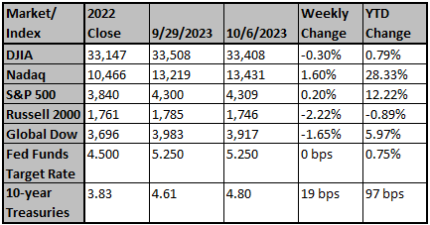Back in 2008, Ben Bernanke and Hank Paulson, using fear of financial collapse, convinced President Bush and Congress to 1) pass a $700 billion bailout of banks (called TARP) and 2) allow the Federal Reserve to pay banks interest on reserves at the same time the Fed moved from a scarce reserve model of monetary policy to an abundant reserve policy. These policies, to spend and print massive amounts of money, were super-sized during COVID.
Both policies proved incredibly damaging. The 2008 financial panic could have been addressed by changing mark-to-market accounting. In the six months following the passage of TARP and the institution of Quantitative Easing, the S&P 500 fell another 40%. Only when mark-to-market accounting was changed in early March 2009 did the panic end.
But, because so few people understood this, the idea that any kind of crisis requires trillions of dollars of spending and money printing became the roadmap for government in a crisis. We fully understand that early on during COVID, fear that we were facing another 1918 flu pandemic was real. But by the end of 2020, there was enough data to show that government shutdowns were harming education, small business, and supply chains, while it was also creating inflation.
But government kept spending and printing money in 2021 and 2022. And then, rather than returning spending back to pre-crisis levels, government spending has ratcheted higher. Between 2000 and 2007, non-defense federal spending averaged 15.3% of GDP, between 2008 and 2019 it averaged 17.6% of GDP, and now from 2020-2023 it is 24.5% of GDP.
For perspective, non-defense government spending was just 10.1% of GDP in the five years between 1965 and 1969. Total government debt is now $33.5 trillion, and with interest rates rising, the total cost of this borrowing is lifting government spending even more.
According to an August 3, 2023 CNN article, “The public remains broadly negative about the state of the country, with just 29% saying things are going well in the US and 71% that they’re going poorly….” We think we know why. Keynesians think government spending can boost growth, but, if so, that extra growth is just temporary. Every dime the government spends is created in the private sector, and the more the government redistributes, the less growth the economy will experience. Potential real GDP growth was roughly 3.5% per year in the 1980s and 1990s…today, we estimate it is just 1.5%.
Meanwhile, monetary policy is a mess. Quantitative Easing signaled a shift to an abundant reserve monetary policy. In 2007, the Fed’s balance sheet was roughly $800 billion. Today it is near $8 trillion. This money creation ended up as deposits on bank balance sheets.
In turn, banks have been forced to hold more deposits than would have existed without QE. And when banks hold more deposits, they also hold more assets. To complicate matters, in an abundant reserve monetary policy, the Fed basically sets rates wherever they want. And in the past fifteen years, the Fed has held short-term interest rates below inflation 84% of the time. In other words, banks (and the Fed itself) are holding assets that they bought at much lower interest rates than exist today.
If the banking system was forced to mark all their assets to market today, many banks would be underwater. In other words, the policies put in place to supposedly save banks have actually created a less safe banking system.
But there are other strange developments as well. One, is that the Treasury Department has a bank account at the Fed, called the Treasury General Account. On October 4 the TGA held $679 billion. The TGA is not new, but for decades through 2007, it held an average of only $5 billion. It was designed as a cash management tool.
Why the Treasury needs hundreds of billions in this account makes no sense. Using an interest rate of 5%, Americans are paying $34 billion a year so that the Fed can hold this cash. The cost of big government just keeps going up and up. It needs to be reversed.
Source: Real Investment Advice
Chart reflects price changes, not total return. Because it does not include dividends or splits, it should not be used to benchmark performance of specific investments. Data provided by Refinitiv.
Sincerely,
Fortem Financial
(760) 206-8500
team@fortemfin.com
Latest News
Top Fed officials nod to higher bond yields as cause for caution on rates
Top ranking Federal Reserve officials indicated on Monday that rising yields on long-term U.S. Treasury bonds, which directly influence financing costs for households and businesses, could steer the Fed from further increases in its short-term policy rate and substitute the work done by financial markets for formal monetary policy moves by the central bank.
Reuters
Crude oil risks mount as Hamas ruptures Middle East detente: Russell
Crude oil prices spiked higher in the wake of a massive Hamas attack on Israel, but the relatively modest increase masks the risk of an escalating Middle East conflict.
Reuters
Analysis: Russian nuclear test would send warning signal, prompt others to follow suit
Russia may be paving the way to conduct a nuclear test, a move that would sharply raise tensions with the West and likely prompt other world powers to resume testing for the first time this century.
Reuters

